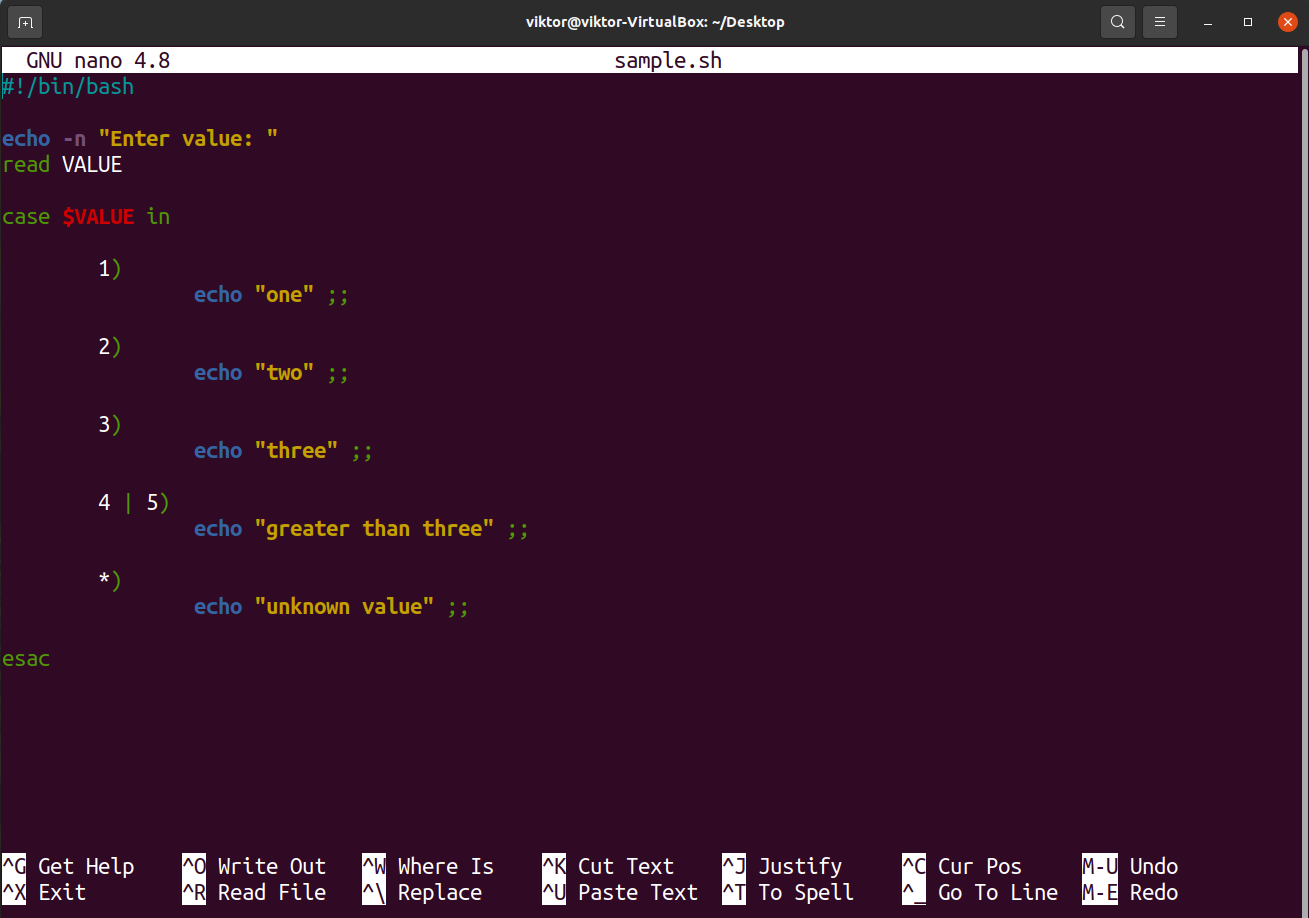Alternatively, you can use wildcards (instead of regexes) with the. Other characters similarly need to be escaped, like #, which would start a comment if not. Patterns are useful not only for filenames and over time found their way into several other shell features. They allow you to define complex patterns and search for matches within. The nul character may not occur in a.
Web the manpage for bash says: Web learn how to use bash's glob patterns, also known as wildcards, to match filenames and perform pattern matching in your bash scripts. Finally, nesting extended patterns is possible, but can be slow if. So, this command essentially says, cat any files that contain 0 or more characters, followed by.txt. Alternatively, you can use wildcards (instead of regexes) with the.
It can also be used to. Web the manpage for bash says: Any character that appears in a pattern, other than the special pattern characters described below, matches itself. Web learn how to use bash's glob patterns, also known as wildcards, to match filenames and perform pattern matching in your bash scripts. The nul character may not occur in a.
Web [[ $string = $pattern ]] doesn't perform regex matching; Patterns are useful not only for filenames and over time found their way into several other shell features. Web case $line in (*$pwd*) # whatever your then block had. This works in bash, dash, and just about any other shell you can name. They allow you to define complex patterns and search for matches within. A backslash escapes the following character; Any character that appears in a pattern, other than the special pattern characters described below, matches itself. The word is expanded to produce a pattern just as in. The nul character may not occur in a pattern. It can also be used to. Web to match regexes you need to use the =~ operator. Other characters similarly need to be escaped, like #, which would start a comment if not. The nul character may not occur in a. Web the manpage for bash says: Web pattern matching for things other than filenames.
Web The Manpage For Bash Says:
Web pattern matching for things other than filenames. Web you can use the test construct, [[ ]], along with the regular expression match operator, =~, to check if a string matches a regex pattern (documentation). Alternatively, you can use wildcards (instead of regexes) with the. Finally, nesting extended patterns is possible, but can be slow if.
So, This Command Essentially Says, Cat Any Files That Contain 0 Or More Characters, Followed By.txt.
Other characters similarly need to be escaped, like #, which would start a comment if not. Web apart from grep and regular expressions, there's a good deal of pattern matching that you can do directly in the shell, without having to use an external program. Web regular expressions are a useful tool for pattern matching in bash scripting. Means any character in regex, it matches only itself in.
Web In This Article, We’ve Seen How To Use Various Methods To Match A Regex Pattern, Such As By Using Grep, The [ []] Construct And The =~ Operator, Bash’s.
It can also be used to. Regex allows users to search, match, and manipulate text patterns with. Any character that appears in a pattern, other than the special pattern characters described below, matches itself. $ {parameter#word} $ {parameter##word} remove matching prefix pattern.
The Word Is Expanded To Produce A Pattern Just As In.
A backslash escapes the following character; They allow you to define complex patterns and search for matches within. This works in bash, dash, and just about any other shell you can name. Web to match regexes you need to use the =~ operator.









